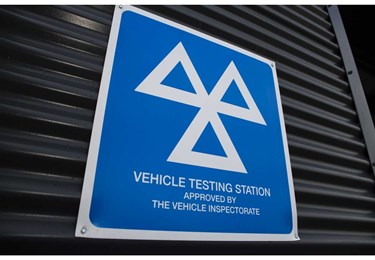87% of IMI members want first MOT interval to remain at 3 years

As part of its response to the Department for Transport’s MOT Consultation, the Institute of the Motor Industry (IMI) has researched the views of the motor industry and motorists. Alongside its own in-depth analysis of MOT data, the new research further underlines the IMI’s view that any change to the current date for the first MOT or the frequency of MOTs would significantly increase road user risk.
If the date for the first MOT for a new vehicle – cars and vans – was extended to 4 years how would you feel? How often do you take your vehicle to have its tyres checked? Do you have your MOT and service at the same time?
IMI Member Research
Consumer Motorist Research
“We received a resounding confirmation – 87 per cent – from our members that the first MOT should not be extended due to increased road safety risk”, explained Hayley Pells, policy manager at the IMI. “And whilst only 51 per cent of motorists we surveyed felt the same, we believe there is sufficient weight of evidence to give the Department for Transport a very clear indication that any change to the start date would be detrimental for all road users.”
The research of motorists found that 78 per cent get their MOT and service done at the same time or that they like to if convenient. If the first MOT is extended by a year and the frequency of MOTs is also reduced, as proposed by the DfT Consultation, this could leave important maintenance issues unchecked. This is particularly a concern as 26 per cent said they wait to be told by the garage that is conducting an MOT or Service if their tyres need changing.
The IMI member research also put a spotlight on the potential economic risks of a change to the MOT start date. 88 per cent believe that extending the date of the first MOT will have an impact on garage income, with members who actually run MOTs from their business also being very concerned about the wider impact of a change. 60 per cent believe a potential fall in MOT business will negatively impact the volume of service work to their garage.
“Whilst 1 in 5 respondents who run MOTs from their business believe it is fair to assume that any fall in the number of MOTs will free up garage staff and allow them to complete other tasks, the reality is that for nearly two thirds a quarter of their income is dependent on doing MOTs” added Hayley Pells. “The wider economic risks of any change cannot, therefore, be ignored.”
The IMI’s own in-depth analysis of MOT data has revealed the risks surrounding electric vehicles – which are heavier than ICE vehicles and cause heavier wear to their tyres – will be heightened if the first MOT date is extended. Evidence drawn from MOT testing records supplied to the IMI by the DfT shows that comparative to petrol engine vehicles, electric vehicles are much more likely to fail their first MOT test.
“The IMI’s response to the MOT Consultation will strongly advise that increasing the time before a periodic inspection of cars is detrimental for road safety” concluded Hayley Pells. “It reduces the frequency of maintenance and inspections that are critical to ensuring that vehicles are in good condition and performing at their best.”

 Xingda
Xingda Denso
Denso

Comments